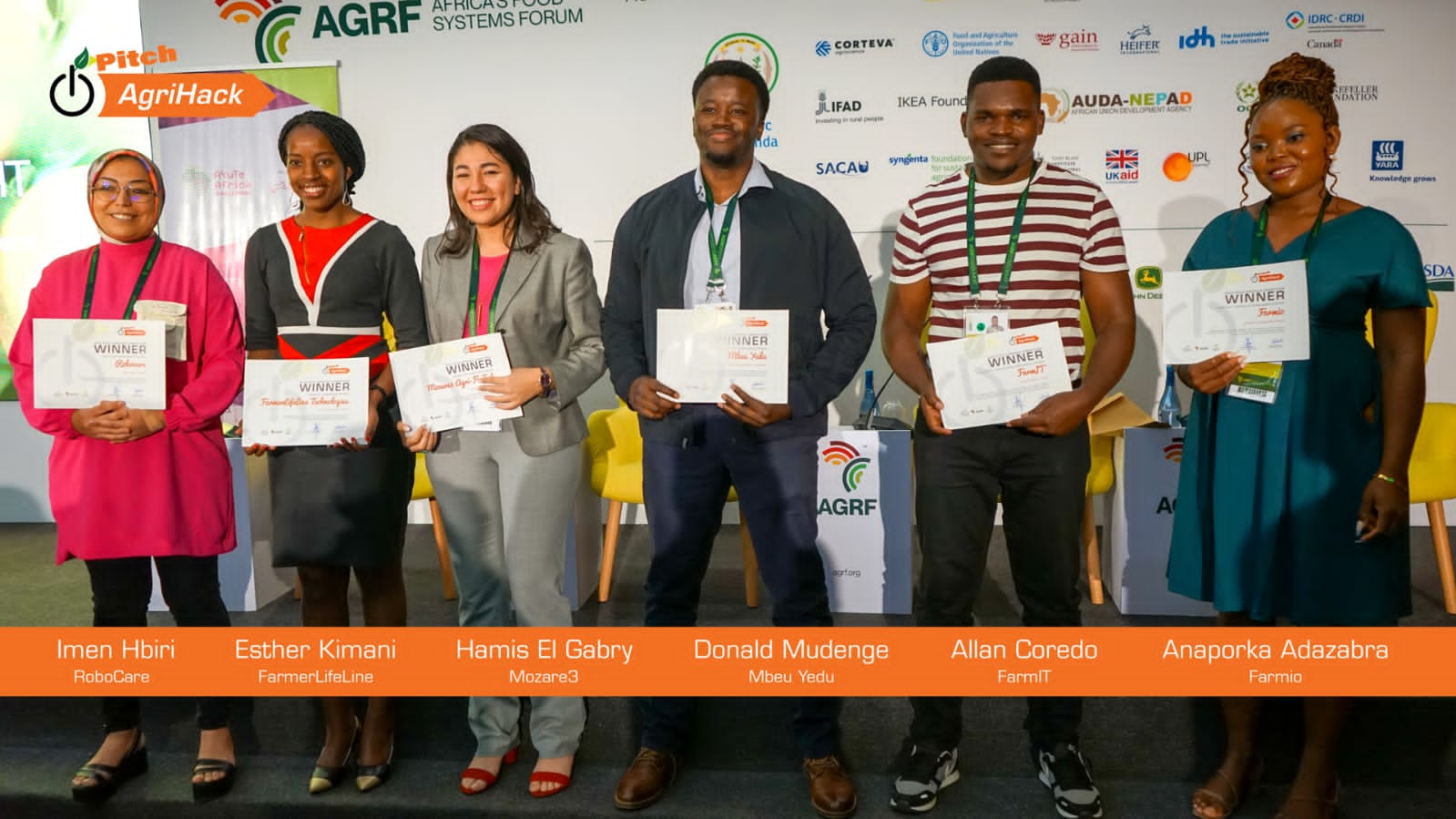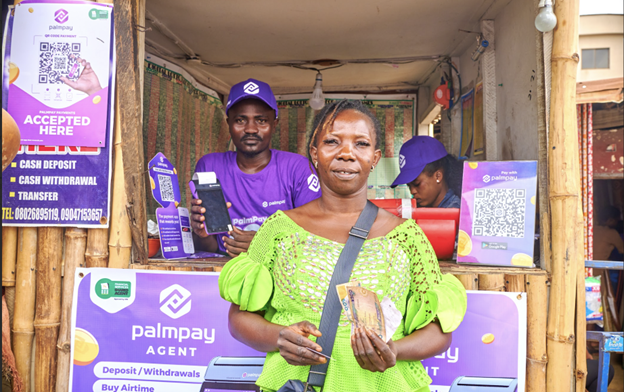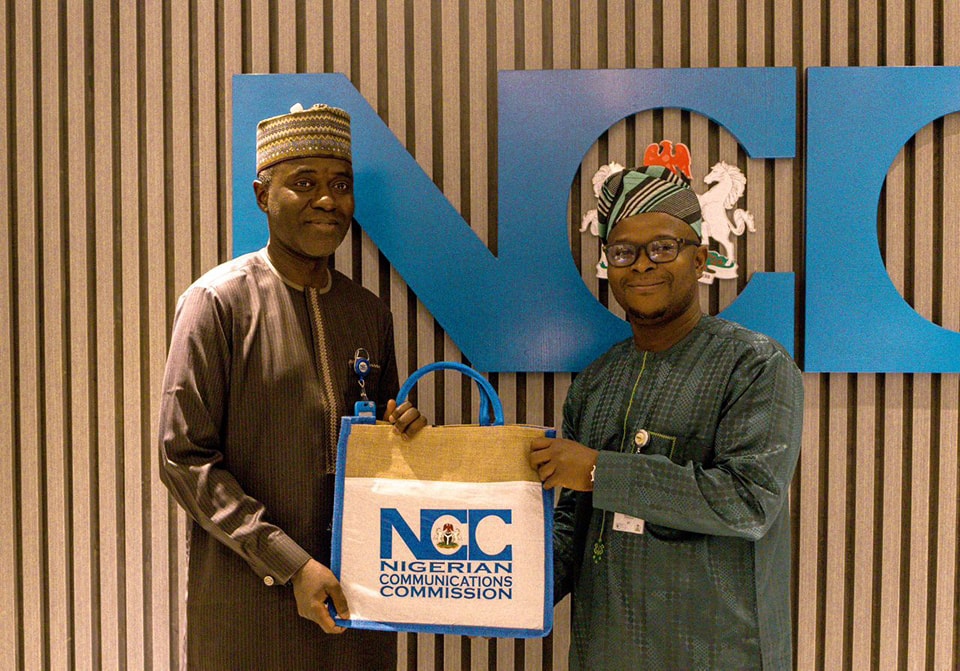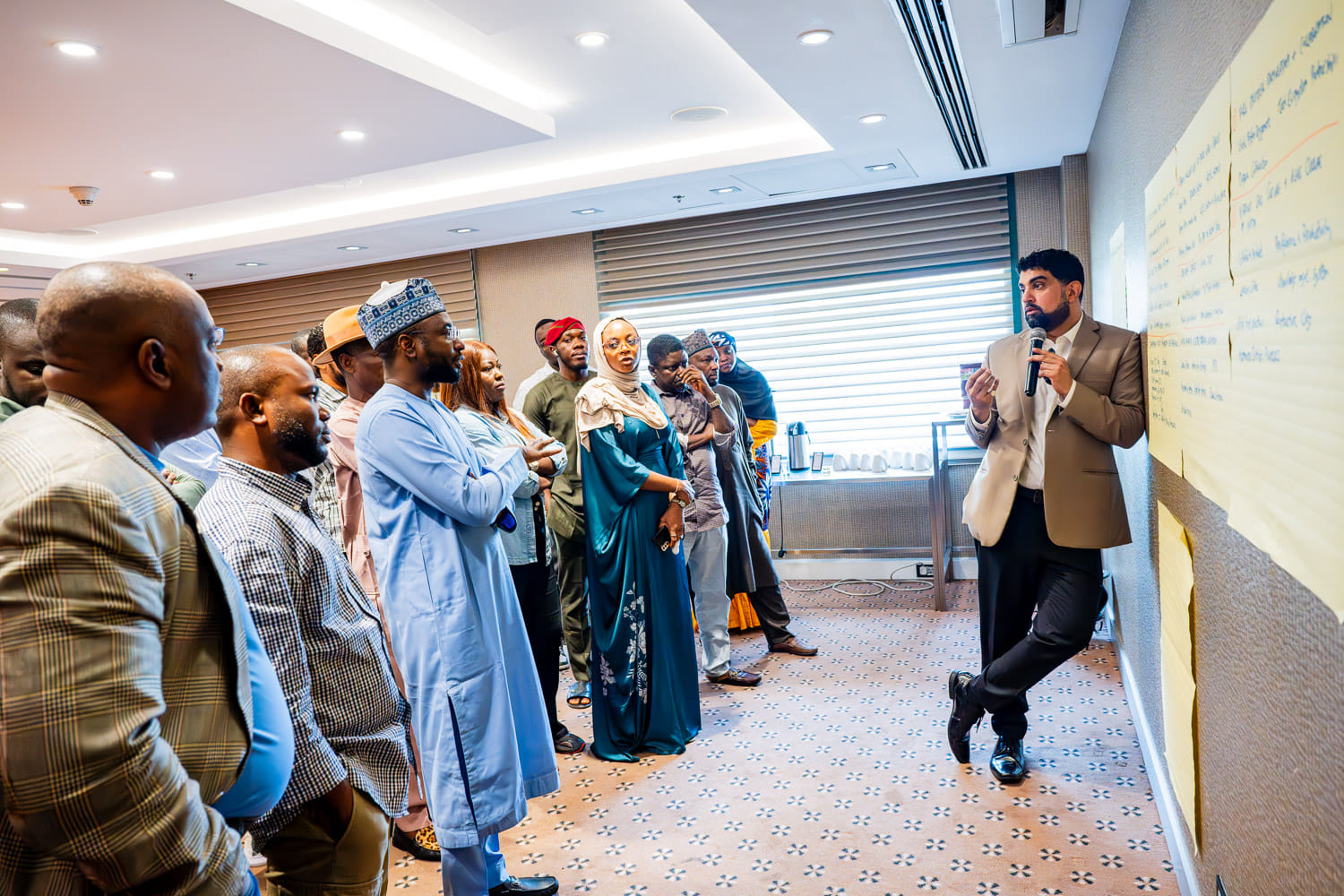African agritech innovators from all four corners of the continent claimed victory in the 8th edition of Pitch AgriHack. The 2022 competition saw a 30% increase in completed applications with entries rolling in from 37 African countries. Representing Egypt and Tunisia in the north, Zimbabwe in the south, Ghana and Nigeria in the west, and Kenya in the east, six youth-led agribusinesses have been awarded their share of US$45,000 to invest in the growth of their ventures.
The winners had a chance to present their businesses to delegates at the African Green Revolution Forum (AGRF) where they participated in Africa’s biggest agribusiness match-making platform, the AGRF Agribusiness Dealroom (https://bit.ly/3eJahk2). Over 800 companies, 15 government delegations and 150 public and private investors convened at the Dealroom to generate exciting new opportunities. “Pitch AgriHack is about creating impact through investment in the young agritech entrepreneurs of Africa.” said Mumbi Maina, Agribusiness Dealroom Lead at AGRA. “Beyond the prize money, we seek to catalyse relationships between our finalists and future collaborators and investors. These are the relationships that will revolutionise the food system.”
Competing in three open competition categories – Early-stage, Mature- or Growth-stage, and Women-led – the Pitch AgriHack winners and runners-up were allocated cash prizes of $10,000 and $5,000 respectively. A fourth invite-only category known as the AYuTe Africa Challenge (https://bit.ly/3DfWcoH), an initiative of Heifer International, will award grants up to US$1.5 million later this year to scalable ventures that are already generating measurable impact for Africa’s smallholder farmers.
In 2022, the AYuTe Africa Challenge is expanding its role as an African agritech accelerator. New national competitions in Ethiopia, Kenya, Nigeria, Rwanda, Senegal and Uganda are offering young innovators a chance to secure the funding and visibility to scale their ideas and ambitions.
For the second year running, Heifer International, the AGRF, and Generation Africa worked together to realize this popular technology competition. “We at Heifer International believe that youth and innovation are the driving force toward transforming the food and farming sector in Africa,” said Adesuwa Ifedi, Senior Vice President for Africa Programs at Heifer International. “Leveraging technology, youth have the potential to unlock economic growth, create job opportunities for millions and empower smallholder farmers into self-reliance. We are excited for the future of Africa’s agriculture and the role innovators like these play in shaping it”.
Automated crop disease detectors, agri-fintech solutions for smallholder farmers, digitizing of community seed banks, and market linkages combined with climate-smart training and satellite yield mapping are only a few of the ideas that came out of this year’s Pitch AgriHack competition. These African agritech innovators are building more comprehensive solutions to solve problems for smallholder farmers.
The Pitch AgriHack 2022 Winners are:
Early-Stage Winners:
Winner: Imen Hbiri of RoboCare in Tunisia.
Robocare’s patented multispectral disease detector is minimizing pesticides and boosting efficiency by helping greenhouse farmers in Tunisia catch and treat infections long before human eyes can even see it https://www.RoboCare.tn/
Runner-up: Donald Mudenge of Mbeu Yedu in Zimbabwe.
Mbeu Yedu understands that seeds are currency. Their platform digitizes Community Seed Banks to give smallholder farmers access to greater seed-varieties, accurate planting information, agri-fintech products, value-added services, and buyers https://MbeuYedu.com/
Mature and Growth-Stage Winners:
Pitch AgriHack is about creating impact through investment in the young agritech entrepreneurs of Africa
Winner: Hamis El Gabry of Mozare3 in Egypt.
Mozare3 is an agri-fintech company that connects small farmers in Egypt to the agriculture supply chain. Their model combines contract farming, agronomic support, financing and market access to increase yields and income https://www.Mozare3.net/
Runner-up: Allan Coredo of FarmIT in Kenya.
FarmIT innovatively combines crop mapping and market linkages to help Kenya’s vegetable farmers. They use satellite imaging, analytics, and AI to provide simplified agronomic advice, and link farmers confidently with big buyers with accurate yields predictions https://Farmit.co.ke/
Women-led Agribusiness Winners:
Winner: Esther Kimani of Farmer LifeLine Technologies in Kenya.
Farmer LifeLine helps Kenyan farmers to get ahead of pests and pathogens with a proprietary disease detection device that leverages solar-powered cameras, Artificial Intelligence, Data Analytics, and Machine Learning. http://www.FarmerLifeLine.co.ke
Runner-up: Anaporka Adazabra of Farmio in Ghana.
With their Smart Greenhouse package, Farmio guarantees a 120% increase in productivity for Ghana’s farmers. Their SuperApp connects growers with investors, buyers, consumers, agri-experts, and service providers. http://www.Farmiogh.com
The achievements of the Pitch AgriHack winners were recognised at a Winners Showcase and Innovators Discussion Panel at the AGRF Summit. “Africa’s youth are bursting with ideas. They are hustling hard to turn dreams of stability and prosperity into a reality for themselves and their communities. For many of them it feels like the chance they need is just beyond reach. All they need is a friend to help them take a step towards self-sufficiency,” said Amanda Namayi, GoGettaz Lead at Generation Africa during the event.
“Our goal is to catalyse impact,” said Dickson Naftali, Head of Generation Africa at the Pitch AgriHack Winners Showcase and Innovators Panel at the AGRF Summit. “All of the people on stage today are making the business of farming easier, more productive, and more predictable for smallholder farmers. They are the front line in our food systems revolution.”
Of the businesses applying for Pitch AgriHack, 20% are mature- or growth-stage businesses and almost 80% are early-stage startups. This is partly due to the youth demographic of the competition. Looking, however, at other research sources, as discussed in the 2022 Generation Africa Call to Action (https://bit.ly/3BvNDVt) released prior to the AGRF Summit, it is evident that there is a need for more financing and investment options for early-stage startups in Africa’s agriculture space. Many of the agritech innovators who reached the Pitch AgriHack finals have identified this problem and have financing options built into their offerings.
From the various Generation Africa programs, it is evident that Africa’s biggest economy, Nigeria, also has the largest number of activated youths pursuing opportunities in the agriculture sector. Forty-four percent (44%) of the entries for Pitch AgriHack come from Nigerian entrepreneurs. Other top countries applying for the competition were Africa’s tech-trendsetter Kenya, followed by Uganda, Ghana, and Rwanda.
Pitch AgriHack was fortunate to welcome back three veteran judges from the previous panel:
- Nixon Gecheo, Senior Program Officer – Digital Systems & Solutions for Agriculture at AGRA (https://AGRA.org/)
- Barbra Muzata, Head of Corporate Communications at Corteva AgriScience (https://www.Corteva.com/)
- Ken Lohento, Digital innovation Strategy Consultant at FAO (https://www.FAO.org/home/)
They were joined by new additions:
- Victor Mugo, Head of Global Partnerships at the World Food Forum (https://www.World-Food-Forum.org/)
- Faith Dube, Head Business Development and Partner Services at Cassava SmartTech (https://bit.ly/3DnUkud)
- Barbara Chivandire, General Manager-Reimagine Rural Africa at Higher Life Foundation (https://www.HigherLifeFoundation.com/)
















